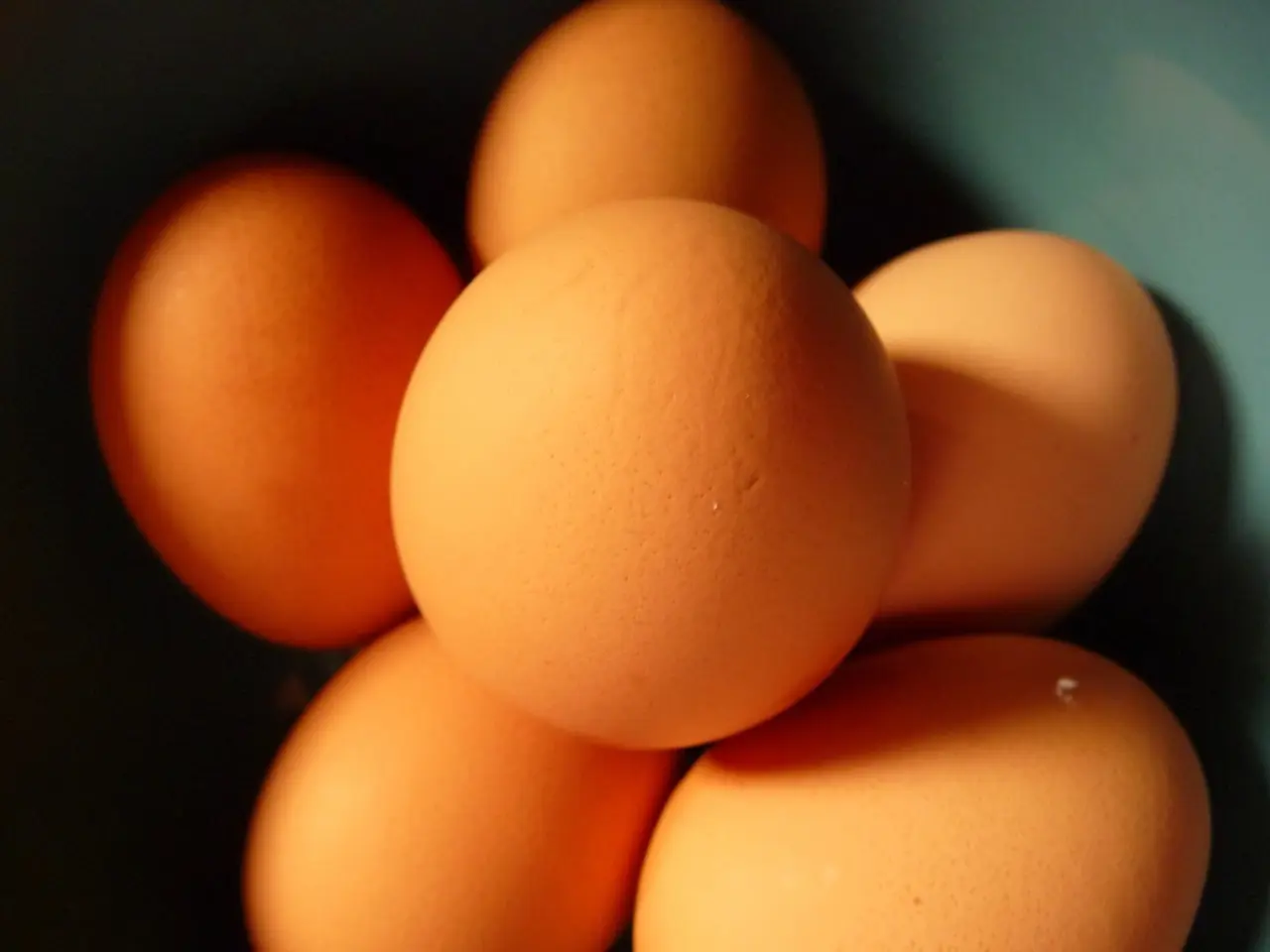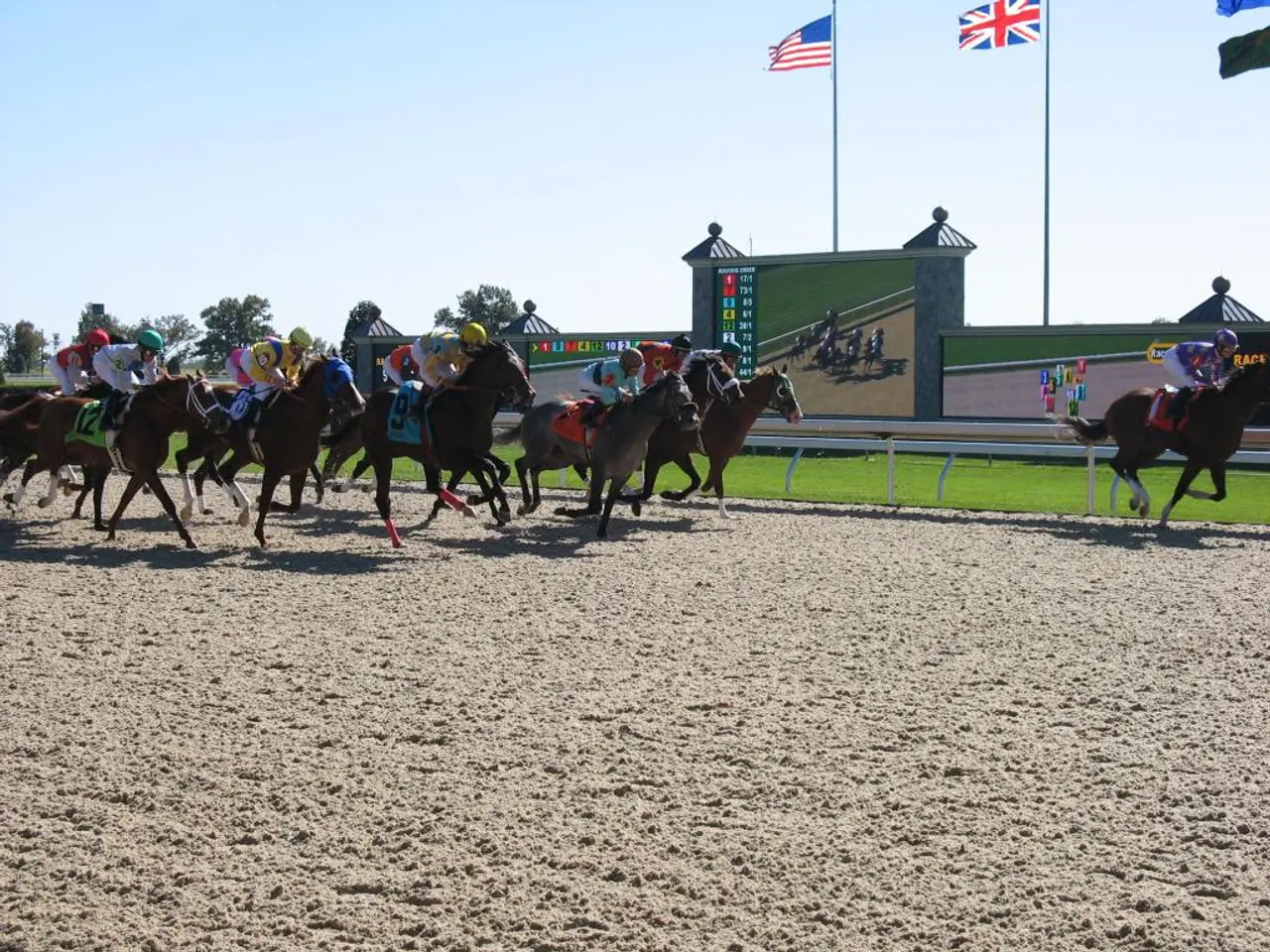DOJ's Claimed Legal Action Labeled as a "Pungent Device" Disrupted at the Heart of U.S. Egg Production Industries by Animal Wellness Action
The U.S. Department of Justice (DOJ) has filed a lawsuit against California’s animal welfare laws, specifically targeting regulations related to poultry farming and egg production. The lawsuit, which mirrors a recent preemption claim brought by the pork industry against Massachusetts’ Question 3, claims that California’s laws conflict with the federal Egg Products Inspection Act and are therefore preempted [1].
California’s laws, such as Proposition 2 (2008), AB 1437, and Proposition 12 (2018), require that eggs sold in the state come from hens housed in conditions that allow them to stand, lie down, turn around, and fully extend their limbs, effectively mandating cage-free housing systems [3][5]. These laws were voter-approved to enhance animal welfare by ending the extreme confinement of laying hens, and similar laws have been adopted in states such as Oregon, Michigan, Massachusetts, and Colorado [1][5].
The DOJ argues that these standards create “unnecessary red tape” that burdens farmers across the country, purportedly raising egg prices by about 20% and disrupting the domestic egg market. The lawsuit alleges that California’s regulations overstep federal authority by setting different standards than those established by the Egg Products Inspection Act, which, according to the DOJ, preempts state-level rules concerning egg production and quality [3][5].
Animal welfare groups, including Animal Wellness Action and the Center for a Humane Economy, strongly oppose the DOJ lawsuit. Wayne Pacelle, president of these groups, criticized the lawsuit as “absurd,” warning that overturning these laws would harm animal welfare by reinstating extreme confinement practices and would negatively impact American egg farmers by allowing low-cost eggs from factory farms outside the U.S.—notably Mexico—to flood the market. They defend the cage-free standards as mainstream animal welfare measures that protect laying hens and public health [1][4].
California officials, including Governor Gavin Newsom and Attorney General Rob Bonta, have vowed to defend the law in court, framing the DOJ lawsuit as economically and politically motivated and contending that policy decisions like Proposition 12 are appropriately made by voters and elected representatives. The U.S. Supreme Court has previously upheld California’s Proposition 12, rejecting challenges that its economic effects on other states violate the Constitution unless there is intent to interfere with interstate commerce [3].
The lawsuit represents the latest in a series of failed legal assaults, mainly by the pork industry and its surrogates, to overturn state laws promoting animal welfare and food safety. The Egg Products Inspection Act does not address the humane treatment of chickens, but rather focuses on consumer safety in a post-production environment [6].
As Americans increasingly demand higher welfare standards, including cage-free housing for egg-laying hens, the legal dispute continues to raise issues about states’ rights, federal authority, animal welfare standards, and agricultural economics.
References:
- Animal Wellness Action
- Center for a Humane Economy
- California Attorney General's Office
- Wayne Pacelle
- Proposition 2
- Egg Products Inspection Act of 1970
- The DOJ's lawsuit against California's animal welfare laws, which target regulations related to poultry farming and egg production, has sparked a political debate in the realm of consumer protection, with animal welfare groups strongly opposing it, arguing that cage-free standards protect laying hens and public health.
- The ongoing legal dispute over California's cage-free housing standards for egg-laying hens, instigated by the DOJ, raises questions about states' rights, federal authority, and the role of consumer protection in shaping agricultural economics, as Americans express growing demands for improved welfare standards.








